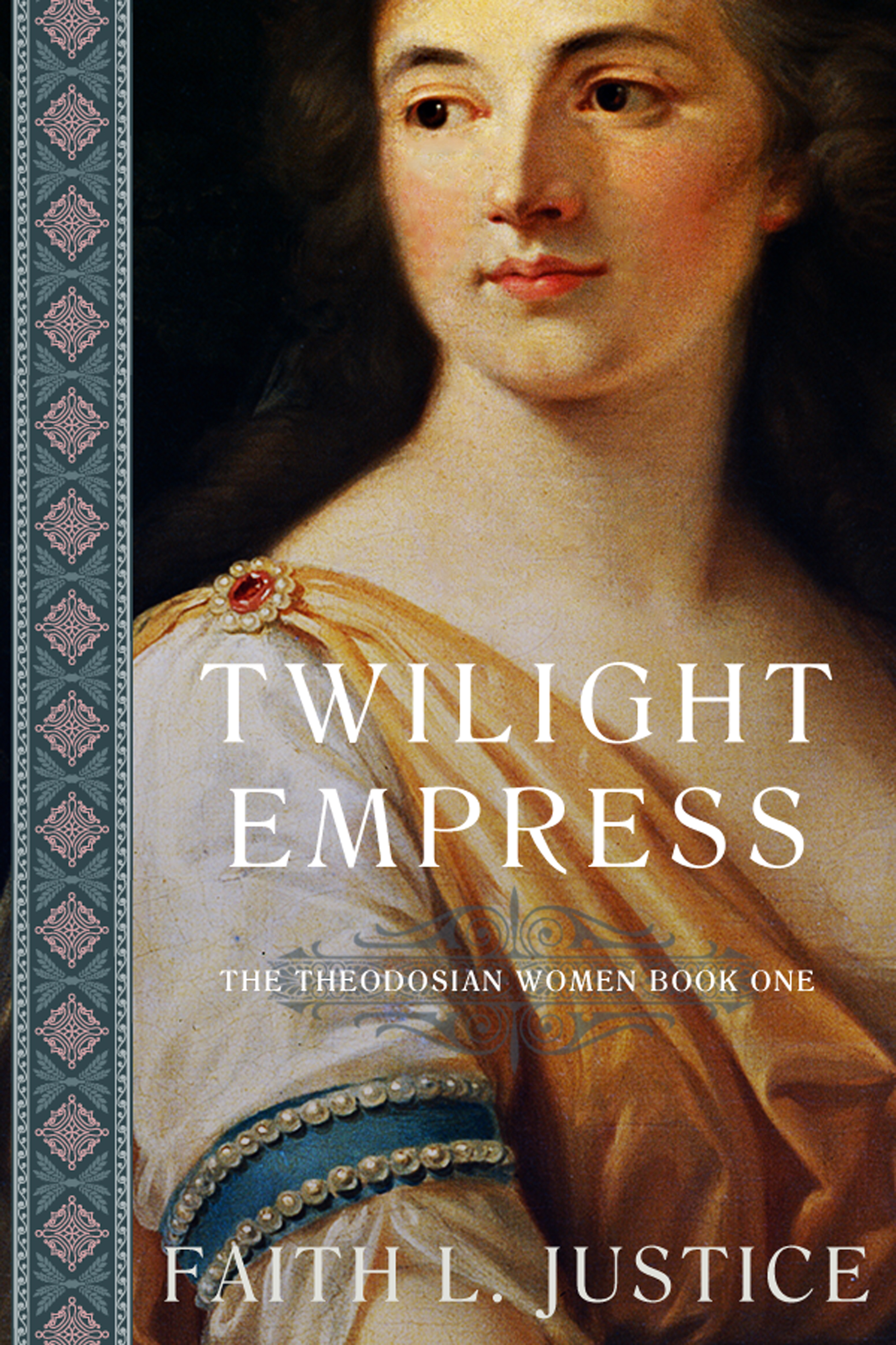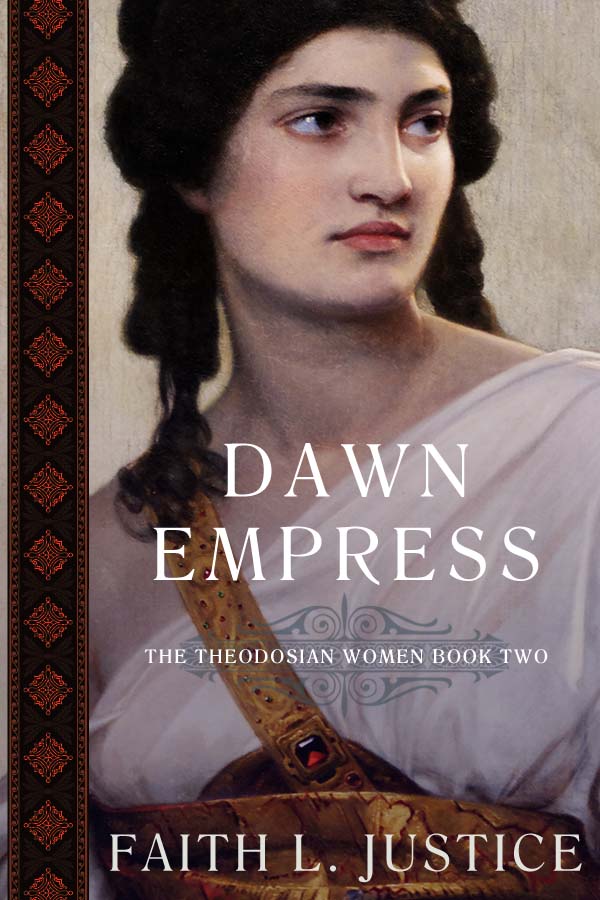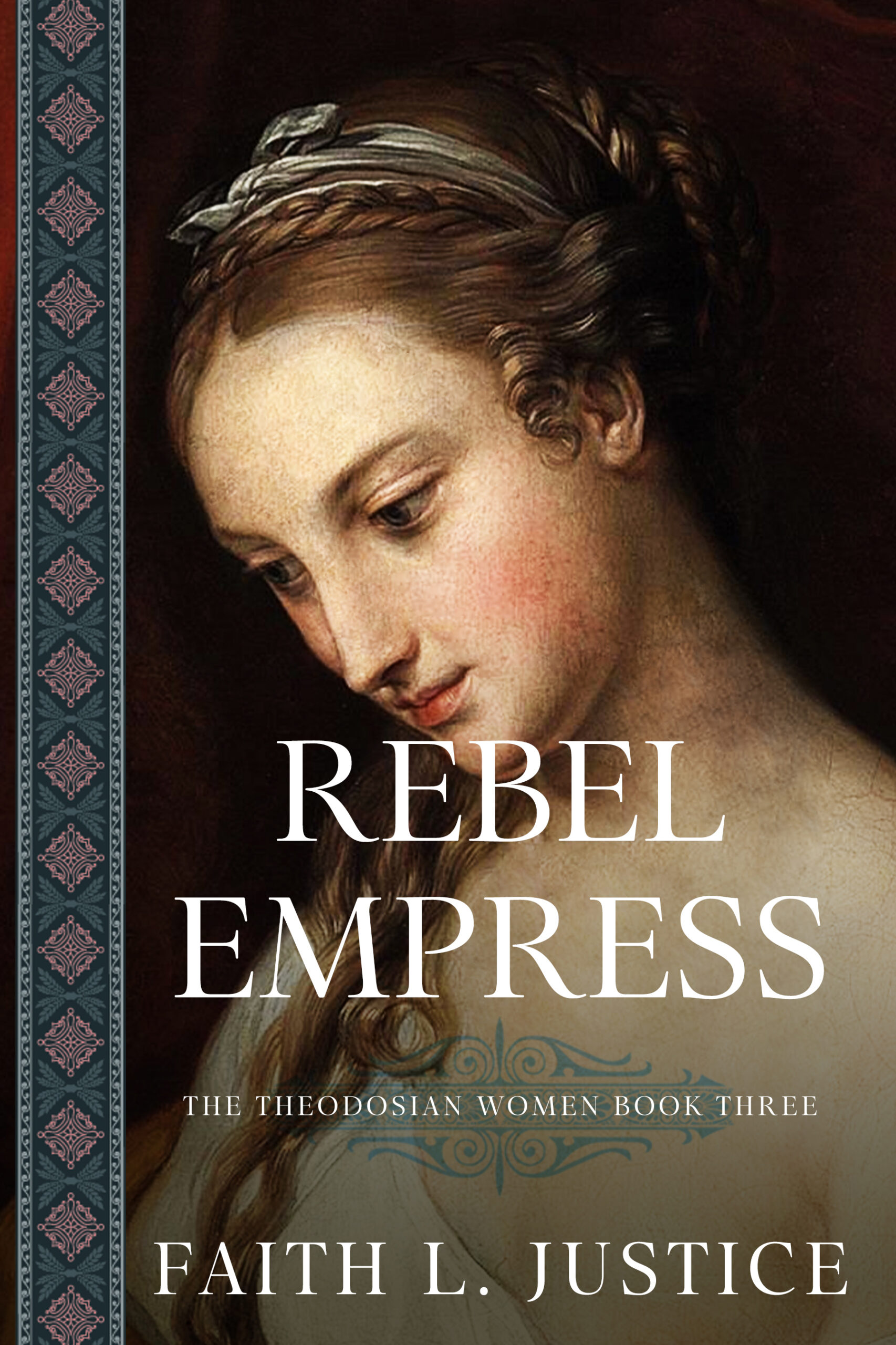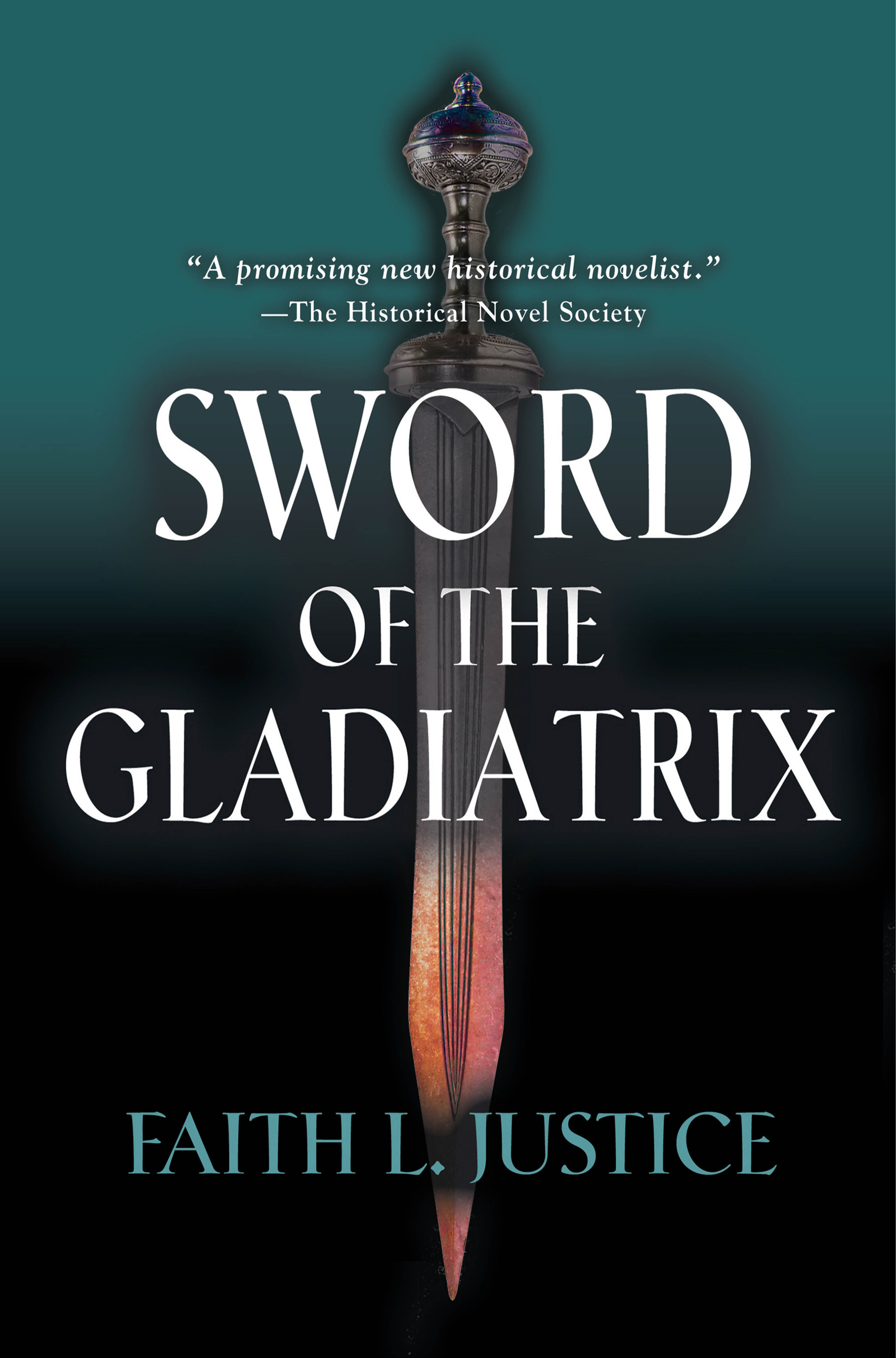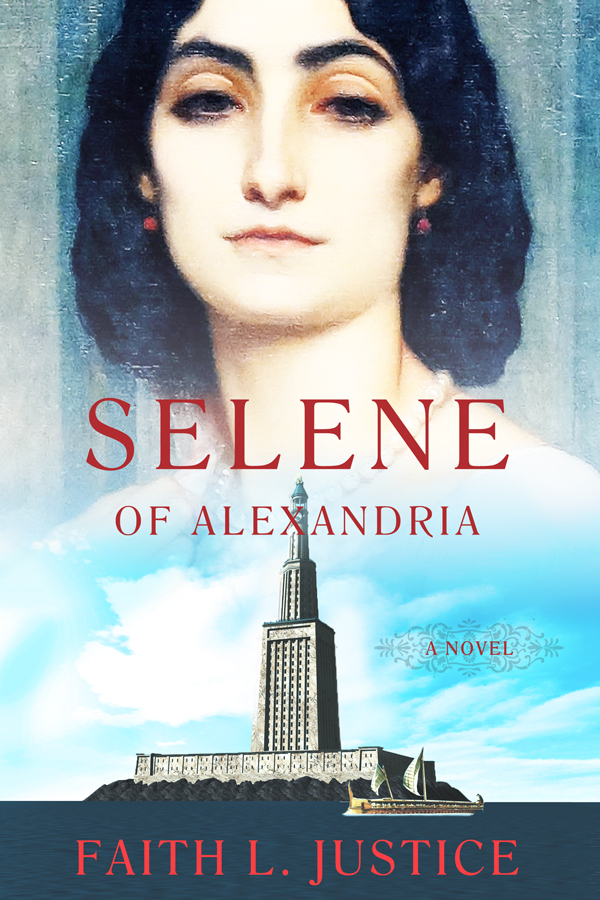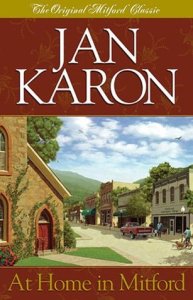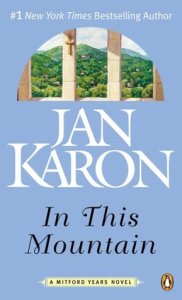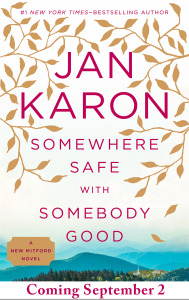Author Interview: Jan Karon
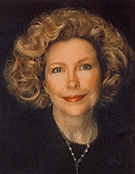 Who would want to read about a balding, sixty-something, diabetic Episcopal priest who presides over a congregation of ordinary people – hairdressers, garage mechanics, diner cooks, as well as the occasional troubled teenager? About ten million people and climbing. Jan Karon the author of The Mitford Series (nine novels plus seven related gift books) has tapped into something deep and needy in the American spirit. “I just write about ordinary people,” Karon says, “and millions and millions of ordinary people are thrilled to find themselves, their families, and friends living in my books.” Ms. Karon spoke to me about writing, the Mitford phenomenon and the joys of rural living from her farm in Virginia.
Who would want to read about a balding, sixty-something, diabetic Episcopal priest who presides over a congregation of ordinary people – hairdressers, garage mechanics, diner cooks, as well as the occasional troubled teenager? About ten million people and climbing. Jan Karon the author of The Mitford Series (nine novels plus seven related gift books) has tapped into something deep and needy in the American spirit. “I just write about ordinary people,” Karon says, “and millions and millions of ordinary people are thrilled to find themselves, their families, and friends living in my books.” Ms. Karon spoke to me about writing, the Mitford phenomenon and the joys of rural living from her farm in Virginia.
Faith L. Justice: What deep-rooted sensibility in America have you tapped with the Mitford series?
Jan Karon: I feel that people have not been able to read about themselves in years and years and years. They have been forced to read about drug dealers, gun runners, dysfunctional families—and heaven knows that’s a reality out there—but they have not been able to find themselves in fiction—their values, their way of living their lives. I simply play back who we really are; strip out the lies the media has tried to teach us. We’re ordinary people, living ordinary lives, trying to make a living, send our kids to school, put food on the table, get through our valleys and occasionally reach a mountain peak. I play it back with wholeness because I include our faith in God. Most of us do have faith in God but you won’t find it in most fiction. I’m writing about ordinary people and millions and millions of ordinary people are thrilled to find themselves, their families and friends living in my books.
FLJ: You’ve said that whatever you write will have your agenda. What is that agenda?
JK: Every writer’s agenda is in their work. You cannot eliminate an agenda. My agenda is for people to know that God loves them and that God’s grace is abounding and it’s real. It can be enjoyed and anybody can receive God’s grace. There are many ways they can do it. One way is to open your heart to God and allow him to have his way with you. I want people to know God loves them and be reminded of that.
FLJ: One reviewer stated that you “depict what may be the most complete rendering of the American myth…a vision of pure America without political divisions, full of religious tolerance and focused on basic values and living the good life.” Is that an accurate analysis?
JK: No. There are dark forces in Mitford. Not the kind we see in most fiction, but the ordinary day-to-day dark forces: a woman who cares nothing for people, who has a hard heart, who uses people and betrays people; illness, alcoholism, drugs, child abuse, child abandonment, diabetes, heart trouble. Cynthia once tried to kill herself and ended up in the hospital. We have people dying. I have never understood the empty-headed idea that Mitford is idyllic. These people are apparently not reading very carefully.
FLJ: The same reviewer said, “Karon holds up the apocryphal small town as the emblem of what has been lost and what needs to be reclaimed.”
JK: The small town culture persists. People think I’m showing something idyllic and romantic that doesn’t exist anymore, but it’s out there. The people who don’t believe it are the ones who keep their eyes glued to the television—which will never show you what is out there—or the people who live in big cities and never go beyond them. But there are many, many, many small towns across America which are just like Mitford. I can swear to this because I’ve been in them and I’ve just spent the last twelve years of my life in one. It hasn’t vanished.
Everywhere you go, you can find Mitford. That’s not just some cute marketing thing I’ve come up with. Mitford is everywhere. It’s in Kansas City, New York, San Francisco. Mitford is about finding a group of people, a neighborhood, a place where people still care about each other and live by the old fashioned values. There’s nothing wrong with feeling good, with being happy, and having old-fashioned values, because those work. It’s that other stuff that isn’t working. That’s what gives us Columbine and all those horrendous things we see in our culture—new fashioned values—they’re not working.
FLJ: You’ve said that for you “progress is always about what you lose.” What does that mean?
JK: For example, I’m currently restoring a house built in 1816. It’s on the National and Virginia Historic Landmarks Register. If I were to restore this house to its original form, I couldn’t comfortably live in it. I’m restoring the house in a way that is very sympathetic. The moldings won’t be changed; we’re not changing any of the important architectural features, but we will have a kitchen I can deal with. I can’t cook in a fireplace. Well, I could, but I don’t have time to write books and cook in a fireplace. So this redo is both progress and reclaiming what was lost. These two things can work in harmony as the whole preservation movement has beautifully shown us.
FLJ: You left a small town for a farm. Did you need to do that to write?
JK: I can write anywhere. I can write in the middle of tremendous turmoil, but I don’t want to. I was in a very small village, but it was still confining. I have 105 acres here. I can’t see another house. I can see the roof of a barn down at the neighbor’s place. I like people. I didn’t come here to be a recluse, but I did come to hear birdsong and see deer in my yard. I was raised on a farm. Animals always meant a lot to me. I didn’t have to touch them, just see them, have something of their presence in my life. Here there are droves of birds. I don’t remember ever seeing goldfinches, purplefinches or a red-tailed hawk in Blowing Rock. Canadian geese fly over honking and settle on the pond. They seem quite happy. I hear a neighbor’s cows bawling, a peacock crying, a rooster crowing. This is food for my soul.
FLJ: I read two reasons you started writing: one, you were “called” and two; you were inspired to write after realizing that few modern books appealed to you.
JK: Both true. I was called to write and spent forty years of my professional income-earning life writing advertising. I had to write advertising well into my fiction career to put bread on the table. I love to write. I like it better than anything on earth. Being “called” is important. You have to write from the heart, what you feel good about, what is exciting to you. I didn’t sit down and say, “There’s a big wide audience yearning for something decent.” Frankly, I didn’t know there was a big wide audience yearning for something decent until I wrote something decent and they loved it.
I would go to my little volunteer library and try to read a best seller. I would open it. On the first page would be a four-letter word. I’m not a prude. I just don’t like rough language. It doesn’t appeal to me. Neither does rough sex or violence. Someone once said, “We don’t have to use barbarous language to make our point,” and I won’t. But that was what I had to read if I read a book. I wanted to write something that I wanted to read. So I wrote this little story in which hardly anything happens. I allow a lot of white space, so your reading time is not filled with sirens, police cars, rape, mayhem, bludgeoning and raw sex.
I wrote a book which you can walk into and sigh – where you can be comfortable. I want to give my readers a place they can feel at home. They’re not threatened. Life is threatening. You can back your car out of the driveway and get killed on the freeway on the way to work. Or get blindsided at 2:00 Tuesday afternoon, as Kurt Vonnegut says, by the doctor telling you you have cancer, or your children are in a terrible car accident, or your husband leaves you, or whatever! You can come to Mitford and people do have problems over here, but it’s not life or death. Whatever happens in Mitford, we can get through it. There’s nothing wrong with feeling safe or happy. I love my readers. I respect my readers. They are human beings with dignity. I care about who they are and what they read. I’ll continue to give them something from the heart.
FLJ: I read you had a rocky beginning—the book you thought you wanted to do just wouldn’t come. How did you work through that?
JK: I don’t know what helped me. I was praying. I’m very prayerful about every part of my life since I became a Christian twenty-two years ago. I asked God to show me. I had stepped out on faith in a scary way. I had cut off my own lifeline and needed to earn my living by toil and dint of perseverance. When I found I didn’t have a book to write or had nothing to say, I was frightened. I asked God to open the doors that needed to be opened and, in the mean time, I worked in freelance advertising. It was a difficult time because we were in a deep recession and advertising agencies didn’t want to hire much freelance help. It was three years of extreme sacrifice but that was OK. You learn in the valleys, not on the mountaintops. That’s where you exult and shout for joy and give praise, but you learn in the valleys.
I had my feet to the fire for quite a while. Then one night, the book I was supposed to write began to come to me. I couldn’t imagine why anyone would want to read about this balding, sixty-something, Episcopal priest. I just went for it. I followed my instincts and my heart and began writing the book I felt comfortable and happy reading. When I take my dogs out to walk, I try not to keep them on too tight a rein. I like to give them some freedom. I like to give my readers some freedom, keep enough openness and white space, in the book, so they can roam and use their own imagination. For example, I don’t necessary tell them what people are wearing or how tall someone is. They’ve got to make a lot of that up in their own mind. That, again, is respect. I believe my readers are fully capable of visualizing characters without being told every detail.
FLJ: I understand you didn’t get much traction with your fist three books. What happened?
JK: Lion, a small Christian press, published the first two books. Penguin published the third one jointly with Lion. From the beginning I really wanted a trade press, but as it turned out, I was picked up by a Christian press. I was so eager to be published; I didn’t know they had limited distribution. I didn’t know even know what distribution was! It had never occurred to me that it was exceedingly key. But I learned. First, I subscribed to Publishers Weekly which cost $140 I didn’t have to spend, but I knew that I had to learn something about the publishing industry, if I was going to master it. With the first book, I did a lot of promotion. I wrote my own publicity stories and got them in my local newspaper. Then I Xeroxed those copies and sent them to book editors and sellers. I personally visited booksellers and gave them one to read. I called them on the phone and told them about my book. I did everything in my power to get the name and the titles out there.
FLJ: You eventually got an agent?
JK: That was a mighty fortunate day. An old friend of mine went to a bookstore and said, “I can’t imagine you never heard of the Mitford series. They’re wonderful books.” The bookseller tried them and they became her #1 best seller. She called me and said, “Jan, you need an agent.” Of course I did, but I didn’t know how to find one. She said she knew a couple of people and let me put you in touch. That’s how I came to my wonderful New York agent Liz Darhansoff who did wonders for the book. She has a lot of southern writers.
FLJ: What are you working on now? What’s next for Mitford?
JK: The sixth full-length Mitford novel In This Mountain and a novella A Common Life will be out next spring. Father Tim is back in Mitford. He did what retired priests do, went off to serve as an intern somewhere. The book I’m writing now will bring Father Tim one of his greatest challenges like most everyone has in life at one time or another. The series will come to an end in 2005. Readers write and say, “Dear Mrs. Karon, I’m 87, please write fast.” There’ll be seven novels, a novella, a cookbook, a Father Tim quote book and probably a bedside companion. I would have to force it, if I went beyond seven full-length novels. What I want to do in this series is simply present the life of an ordinary decent human being with all the ups and the downs. I celebrate ordinary human beings and that’s why very ordinary human beings like to read my books.
© 2008 by Faith L. Justice
Author’s note: I interviewed Ms. Karon in 2000. Since then, she’s published her tenth Mitford novel plus two Father Tim novels and a number of gift books. Portions of this interview appeared in:
“Jan Karon on Bringing Mitford Home” in Virginia Adversaria, 2001
“Bringing Mitford Home: Jan Karon on the Enduring Success of her Mitford Series” in iUniverse.com, 2000
